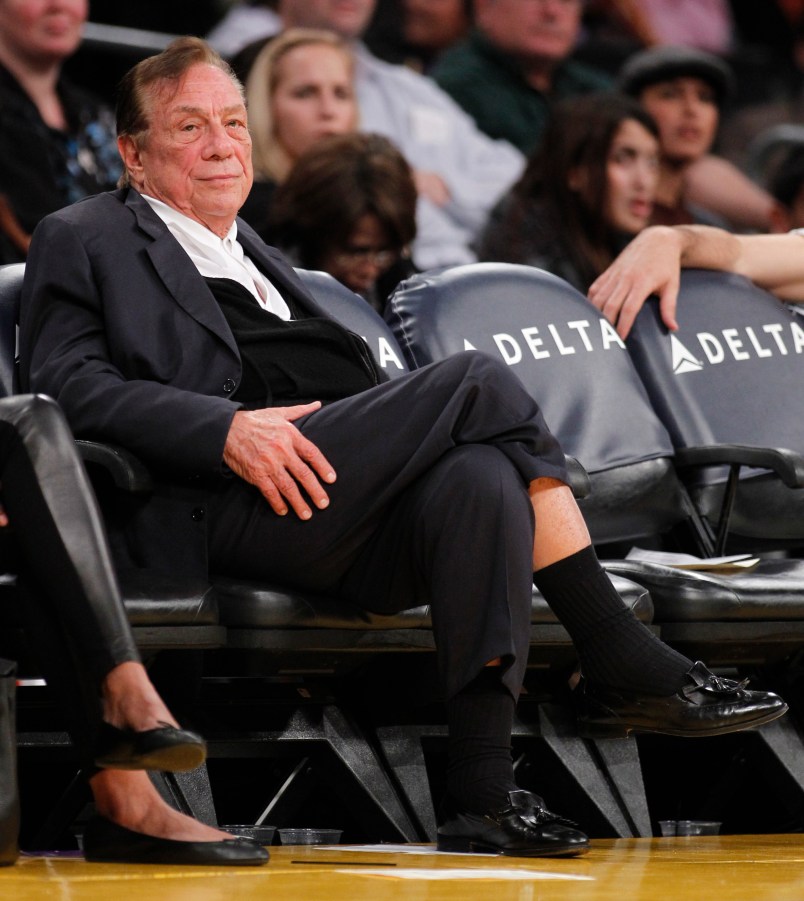When I think of the world’s worst boss, I think of Bobby in the movie Horrible Bosses, portrayed brilliantly by the actor Colin Farrell. Bobby is a business owner, and in his first major scene, dialogue between him and one of his company’s managers (played by the actor Jason Sudeikis) goes like this:
Bobby: “Oh yeah, we’ve got to trim some of the fat around here.”
Kurt: “What do you mean by trim the fat?”
Bobby: “I want you to fire the fat people.”
Kurt: “What?!”
Bobby: “They’re lazy and they’re slow and they make me sad to look at.”
“Bobby” is the perfect caricature of a horrible boss and a terrible person, and while he is fun to laugh at in a movie, he unfortunately exists in real life. His vitriolic and abusive behavior toward his workers, along with his deeply discriminatory views, has grave consequences for those who work for him.
In these respects, Bobby reminds me of Los Angeles Clippers owner Donald Sterling. Specifically, he reminds me of Sterling’s lack of regard for the people who labor for him so that he can build his sizable wealth.
News broke late last week of a racist rant by Sterling, who said on a recording that he does not want African Americans attending Clippers basketball games. (Most Clippers team members are African American, as are 76 percent of all National Basketball Association (NBA) players.) And this story about Sterling has led to deeper revelations about the powerful figure who has long harbored not only troubling racist views toward his workers, but sexist views as well. As writer Filip Bondy pointed out in the New York Daily News on Sunday, while the NBA is now prepared to address Sterling’s behavior following this revelation of racism, professional basketball has long tolerated Sterling’s documented poor treatment of women.
Writers Peter Keating, Amanda Younger, and Alyssa Roenick detailed Sterling’s history of sexually harassing the women who work for him in an article for ESPN earlier this week. One woman who worked as a hostess and set up “cattle calls” to recruit other women, said, “Working for Donald Sterling was the most demoralizing, dehumanizing experience of my life….He asked me for seminude photos and made it clear he wanted more. He is smart and clever but manipulative….When I didn’t give him what he wanted, he looked at me with distaste. His smile was so empty.”
Sterling is also an owner of rental properties. In the early 2000s, one of Sterling’s top property supervisors, Sumner Davenport, claimed Sterling sexually harassed her.
ESPN also noted, “When it comes to female subordinates (emphasis added) in his real estate business, Sterling shows a distinct racial preference. In 2003 he had 74 white employees, four Latinos, zero blacks and 30 Asians, 26 of them women, according to his Equal Employment Opportunity filings with the state of California. (The numbers are similar for the other years in which Sterling has been charged with racial discrimination.)”
In 2006, a woman who worked for Sterling, Christine Jaksy, sued Sterling for sexual harassment; their matter was settled. According to Keating at ESPN, “Testimony Jaksy gave under oath [revealed that] Sterling touched her in ways that made her uncomfortable and asked her to visit friends of his for sex. Sterling also repeatedly ordered her to find massage therapists to service him sexually, telling her, “I want someone who will, you know, let me put it in or who [will] suck on it.”
Bondy notes that “[T]he NBA, like all the other sports leagues and the male-dominated sports media, doesn’t care nearly enough about the way men treat women…How, exactly, is any woman employee of the Clippers supposed to work for a man like this? (emphasis added).” Sterling, though now a public example, is not alone: poor treatment of women exists across businesses in which men sign the checks and women are economically vulnerable. In 2011, there were nearly 10,000 complaints of sexual harassment made by women to the U.S. Equal Employment Opportunity Commission (EEOC).
Feminist economists have long noted the ways in which the power dynamics of male-dominated spheres like the NBA can allow exploitation of women. Economist and MacArthur Genius Grant winner Heidi Hartmann has noted the different experiences of women and men in capitalism; specifically, “the vested interest men had in women’s subordination. Sexism is not simply a leftover from pre-capitalist times, it has survived and thrived as a part of capitalism.”
Sexism is often given a pass in capitalism — a lesson Sterling’s story makes clear.
Sheila Bapat is a former employment attorney who now writes about gender and economic justice. Her book about the U.S. domestic workers’ movement will be released by Ig Publishing in 2014.







I wondered why it took TPM and others so long to start looking into the CLEAR AND PRESENT sexism expressed in that conversation. I really am disappointed it took this long, but better late than never I suppose. I guess it speaks to peoples’ experiences, what they immediately recognize. I immediately recognized his language, tone and expectations.